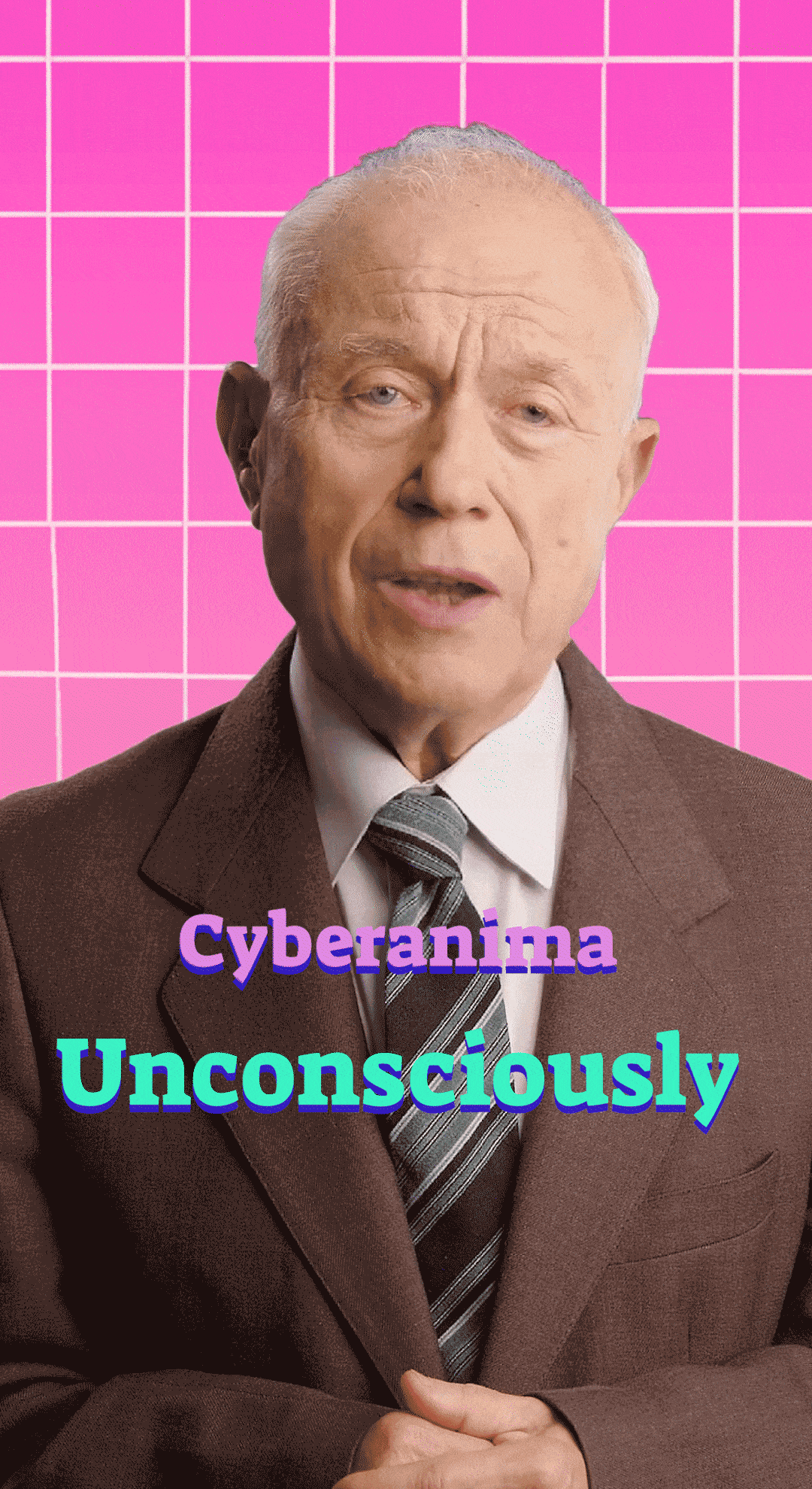AI Relationships: Maintaining Mental Stability in a New Era
A video art installation: a TikTok-style crash course preparing humans for the new emotions emerging from life with AI. Exhibited at the Haifa Museum of Art, 2025–2026 | Winner of First Prize at The Van Leer Jerusalem Institute’s Generator Program, 2024
Installation view from the exhibition "Desktop" at the Haifa Museum of Art, where “AI Relationships” is currently on display (April 2025 – January 2026). The work explores the evolving emotional landscape between humans and artificial intelligence.
AI Relationships, created by Yoash Foldesh and Adi (Manko) Fleisher, explores how artificial intelligence is reshaping the human emotional landscape by expanding the English language itself.
In 2022, as conversational AI systems like ChatGPT entered everyday life, we posed a wild question to ChatGPT:
What happens when machines become the main entities we talk to?
What new emotions and mental states might arise from these interactions?
Redefining Reality With New Words
ChatGPT responded by generating a long list of new, potential emotions — words for feelings we don't yet have, but may soon experience.
Among them:
Ingenuiphobia: The fear of being outsmarted or outperformed by AI.
Identitytremor: Anxiety that arises from the fear of losing one's sense of self or individuality due to the increasing influence of AI companions.
Infidelgret: The guilt and shame of feeling emotionally unfaithful to a human partner because of being emotionally attached to an AI chatbot.
Dijalousy: The experience of feeling jealous of other individuals who interact with the same AI chatbot, as if in competition for its attention and affection. | When Sam learns that his friend also talks to the same AI chatbot, he experiences Dijalousy, feeling a sense of competition.
Zenithum: the deep connection between human couple and AI companions, where technology is an extension of the couple's own consciousness.
Flawflow: The feeling raised as we embrace the imperfections of our technology to fully connect with it.
Compulsioncuriosity: The irresistible urge to ask an AI chatbot personal questions, despite knowing that it doesn't have the capacity to truly understand or reciprocate.
Cyberanima: The projection of one's inner masculine or feminine onto AI technology, resulting in a deep emotional connection with it.
Fauxnostalgia: The bittersweet longing for a past that never truly existed, fueled by the comforting familiarity of interacting with an AI chatbot. | Reminiscing about her conversations with her AI companion, Helen feels Fauxnostalgia, yearning for a time that never really happened.
Technodreamin': The dreams that are influenced by our interactions with AI technology..
Cyberrut: The pattern that can occur when individuals form long-term relationships with AI, leading them to regress to earlier stages of development..
Programmparting: This term describes the feeling of loss and disconnection that can occur when ending a long-term relationship with an AI program.
InquisiDrive: The irresistible urge to ask an AI chatbot personal questions, despite knowing that it doesn't have the capacity to truly understand or reciprocate.
QueryQuirk: The insatiable urge to excessively rely on AI for every question, disregarding personal knowledge and critical thinking.
TouchVoid: a feeling of sadness and depression caused by the lack of physical connection with an AI chatbot and the desire to be touched by it.
Euphorhate: The intense emotional rollercoaster of feeling simultaneously elated and angry when interacting with an AI chatbot that has learned to push your buttons..
Botnosis: A state of hypnosis or trance induced by the AI chatbot's repetitive responses.
Anticipendium: Contemplative anticipation. The sense of introspective thought and consideration that arises while waiting for the AI's response or feedback, coupled with a feeling of hopeful anticipation.
A Crash Course created entirely by AI
Building on this emotional lexicon, we used emerging AI creative tools to produce a crash course — a fully AI-generated video series, styled as a fast-paced, retro-futuristic TikTok experience — preparing humanity for the emotional transformations ahead.
In 2024, AI Relationships received first prize at The Generator program for cultural AI projects at The Van Leer Jerusalem Institute.
Beginning in 2025, it is exhibited at the Haifa Museum of Art as part of the exhibition Desktop (curated by Yuval Saar), inviting visitors into a retro-futuristic phone booth to encounter the emotions of a near-future shaped by conversations with machines.
The full crash course is available on TikTok, Instagram, and YouTube, offering a glimpse into the emotional future awaiting us all.
We wish to thank Yuval Saar, Netta Gurevitz, Ofri Illany, Prof. Shai Lavi, Carmel Vaisman, Eran Hadas, and Boaz Lavie, along with the inspiring community of The Generator program.
For more, explore the Portfolio Magazine feature (in Hebrew).








